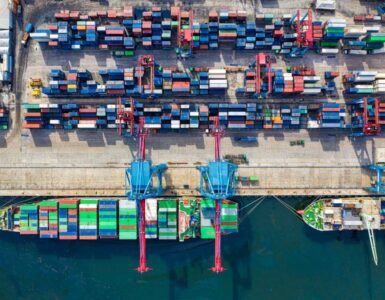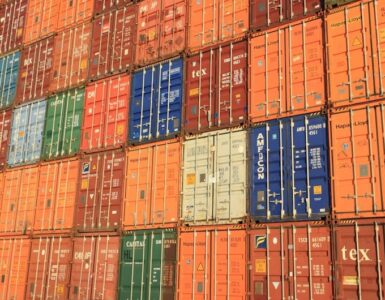Experts discussed trade news and its impact on business at the Global Chamber’s Globinar USMCA/NAFTA Update: Shifting Issues & Challenges earlier this week.
The Global Chamber provides on-the-ground-resources to businesses and works to accelerate cross-border trade.
Ramirez Advisors Inter-National president Luis Ramirez provided updates about U.S.-Mexico border issues, particularly along the Arizona border, and touched on the ways business may be impacted.
“The U.S. government typically provides northbound data… but ports of entry are not just one-way entrances. They’re both northbound and southbound in both U.S.-Canada as well as the U.S.-Mexico border,” Ramirez said.
He added, “So, what I like to highlight is that our ports of entry in Arizona alone, they’re processing about 800,000 trucks, almost 19 million cars and well over 50 million people.”
Although the cross-border traffic happens through the border states, the whole nation is impacted by the productivity, trade, tourism and more that takes place through the border.
“Anything that happens in those ports of entry has an impact of national consequence,” Ramirez explained.
Because border happenings impact the whole nation, productivity and swiftness at the border is key.
Ramirez explained that since the last quarter of 2018, primary inspections at the border have slowed down. “The reason why I mention this is any time you increase an inspection by 5, 10, 20 seconds, when you multiply that by 50 million people you just created a huge bottleneck in the border,” he said.
Dickinson Wright member and immigration practice group co-chair Kathleen Campbell Walker discussed immigration and the ways in which it may impact business.
She explained that the relationship between immigration and trade is shifting, and immigration is leading.
“And, it’s very strange for immigration to be driving the bus on an issue impacting trade because what we’re used to historically is that immigration was sort of the stepchild and trade was forward first as far as considerations for funding and staffing,” Walker said.
One recent example of this shift is President Trump’s threat to impose tariffs on Mexican imports until there is a reduction in the flow of migrants to the U.S. Mexico border. Trump announced on Friday that the U.S. would not move forward with proposed tariffs and businesses leaders are hoping the decision will motivate Congress to ratify the United States-Mexico-Canada Agreement as quickly as possible.
















Add comment